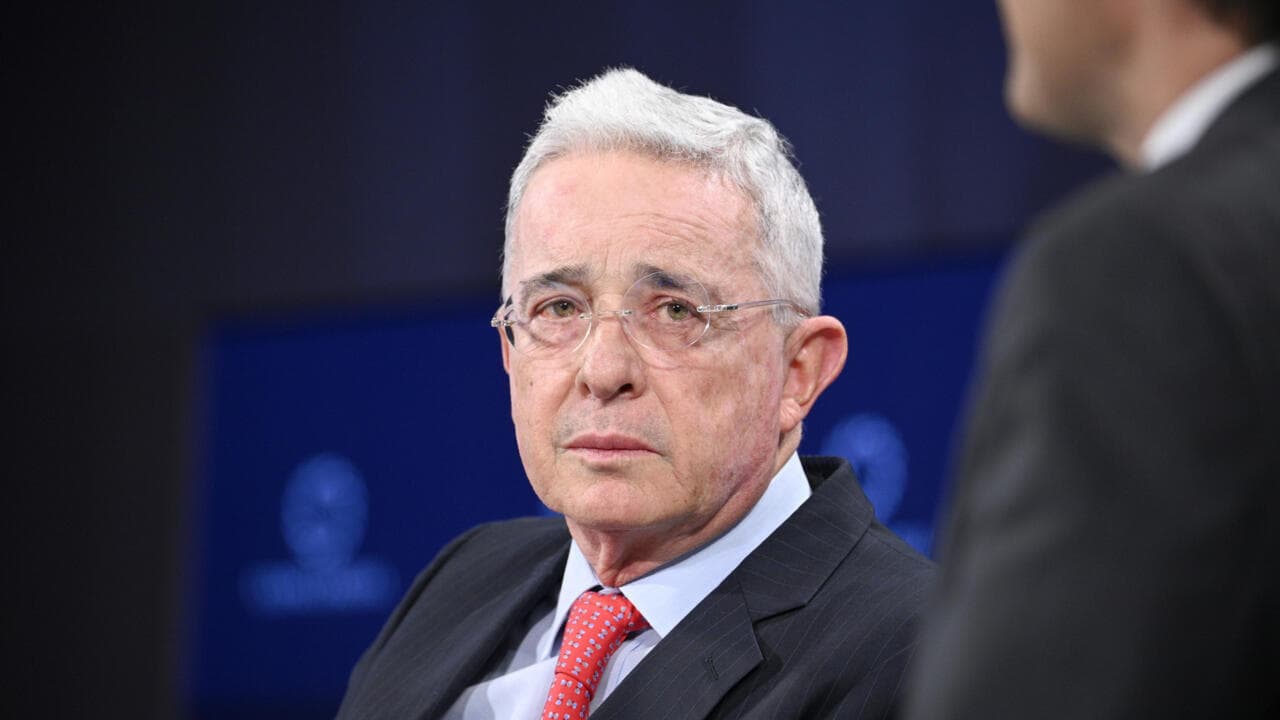We're loading the full news article for you. This includes the article content, images, author information, and related articles.
A Colombian appeals court has overturned the bribery and witness tampering conviction of former President Álvaro Uribe, a decision that dramatically alters a historic case that has deeply divided the South American nation and captivated Kenyans following international news.

In a significant legal development, a Colombian appeals court on Tuesday, October 21, 2025, overturned the conviction of former President Álvaro Uribe for bribery and witness tampering. The ruling reverses an August 2025 decision that had sentenced the 73-year-old conservative leader to 12 years of house arrest.
The appeals court cited "structural deficiencies," vague premises, and a lack of comprehensive analysis in the initial conviction. This decision allows Uribe, who has consistently denied any wrongdoing and labeled the case as political persecution, to remain free.
Álvaro Uribe served as President of Colombia from 2002 to 2010. His presidency was marked by a strong stance against leftist guerrilla groups like FARC and ELN, and he is credited by many with improving security and stability in Colombia. However, his tenure also drew criticism due to allegations of human rights violations and ties to paramilitary groups in the 1990s.
The legal saga began in 2012 when Uribe filed a libel suit against leftist Senator Iván Cepeda. Cepeda had been investigating Uribe's alleged links to paramilitary groups, gathering testimonies from imprisoned former paramilitaries. In a significant turn in 2018, Colombia's Supreme Court dismissed Uribe's accusations against Cepeda and instead opened an investigation into Uribe himself for fraud and witness manipulation.
Colombia's judicial system allows for appeals to the Supreme Court, providing a further avenue for prosecutors and victims in this case. The country's legal framework, as outlined in its 1991 Constitution, guarantees due process, including the right to appeal. However, the application of this right to politicians convicted by the Supreme Court has been a subject of debate and reform efforts.
A key point in the appeals court's rationale for overturning Uribe's conviction was the legality of wiretaps of his phone, which the court determined had to be excluded as evidence because they were initiated by mistake during another investigation.
Uribe, a polarizing figure, maintains strong support from a segment of the Colombian population who view him as a national hero. His party, Democratic Center, has indicated that Uribe may run for senator if his legal situation permits. Critics, however, associate him with human rights abuses and the rise of paramilitary groups.
Senator Iván Cepeda, a prominent leftist figure, has been at the forefront of the investigation into Uribe's alleged ties to paramilitary groups. The original trial judge had found sufficient evidence to suggest Uribe conspired with a lawyer to influence three imprisoned former paramilitary members to change their testimony.
The initial trial in August 2025 lasted nearly six months, during which prosecutors presented evidence alleging Uribe attempted to influence witnesses. The appeals court's decision on Tuesday, October 21, 2025, was not unanimous, with two of the three judges voting to overturn the conviction, while the third dissented.
The appeals court's decision has significant political ramifications in Colombia, particularly with legislative and presidential elections approaching next year. President Gustavo Petro, Colombia's first leftist head of state and a vocal opponent of Uribe, criticized the court's decision to exclude the wiretaps. Conversely, U.S. Secretary of State Marco Rubio expressed that "justice has prevailed," calling Uribe a victim of a "witch hunt."
The case remains open to further legal challenges, as prosecutors and victims have the right to appeal Tuesday's ruling to Colombia's Supreme Court. The long-running nature of this legal battle, spanning over a decade, highlights the complexities and deep political divisions within Colombia's justice system.
All eyes will be on the potential appeal to Colombia's Supreme Court, which could further prolong this high-profile legal battle. The outcome will undoubtedly continue to shape Colombia's political landscape and influence upcoming elections. The case also underscores the ongoing debate about the role of the judiciary in holding powerful political figures accountable.
Keep the conversation in one place—threads here stay linked to the story and in the forums.
Sign in to start a discussion
Start a conversation about this story and keep it linked here.
Other hot threads
E-sports and Gaming Community in Kenya
Active 9 months ago
The Role of Technology in Modern Agriculture (AgriTech)
Active 9 months ago
Popular Recreational Activities Across Counties
Active 9 months ago
Investing in Youth Sports Development Programs
Active 9 months ago